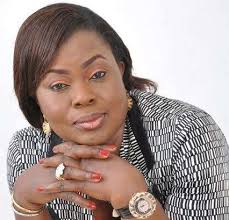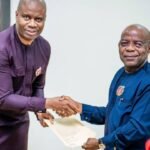In a democratic setting where unity in diversity should be the bedrock of governance, it is tragic and alarming to witness what appears to be a systematic and unapologetic tribal takeover of Nigeria’s entire financial architecture under the current administration. President Bola Ahmed Tinubu, in what many now regard as the most ethnically skewed approach to national appointments in recent memory, has populated virtually all the core financial and strategic economic institutions of Nigeria with individuals from his Yoruba ethnic group.
This disturbing trend reached a crescendo when the only core Hausa-Fulani representative among the critical financial regulatory agencies—once a symbol of the North’s inclusion in Nigeria’s financial safety net—was quietly replaced by another Yoruba man. That single action marked the complete erasure of Northern presence from the top-tier financial regulatory space. What remains is a homogeneous clique with the same ethnic identity, operating in the most sensitive areas of revenue generation, financial regulation, wealth distribution, and economic investigation.
As of today, the financial sector in Nigeria is in the hands of the following Yoruba appointees:
1. Olayemi Cardoso – Governor, Central Bank of Nigeria (CBN)
2. Wale Edun – Minister of Finance
3. Oludare Sunday Thomson – MD/CEO, Nigeria Deposit Insurance Corporation (NDIC)
4. Omolola B. Olukoyode – Director-General, National Pension Commission (PENCOM)
5. Olusegun Ayo Omosehin – Commissioner for Insurance, NAICOM
6. Emomotimi Agama – DG, Securities and Exchange Commission (SEC)
7. Olanipekun Olukoyode – Chairman, Economic and Financial Crimes Commission (EFCC)
8. Dr. Rabiu Olowo – Executive Secretary/CEO, Financial Reporting Council
9. Temi Popoola – CEO, Nigerian Exchange Group
10. Dr. Olasupo Olusi – MD/CEO, Bank of Industry (BOI)
11. Ayo Sotinrin – MD/CEO, Bank of Agriculture (BOA)
12. Dr. Tony Okpanachi – MD/CEO, Development Bank of Nigeria (DBN)
13. Adekunle Oyinloye – MD/CEO, InfraCorp
14. Zacch Adedeji – Executive Chairman, Federal Inland Revenue Service (FIRS)
15. Adewale Adeniyi – Comptroller General, Nigeria Customs Service
16. Bayo Ojulari – MD/CEO, NNPC Limited
17. Mr. Gbenga Alade – MD/CEO, Asset Management Corporation of Nigeria (AMCON)
This list, at face value, is shocking. When closely examined, it becomes a national emergency. Every single one of these individuals controls a lever of financial power in Nigeria. From regulation both Fiscal and Monetary Policies formulation (FMF, CBN, SEC, NDIC, NAICOM, PENCOM), to revenue generation and collection (FIRS, Customs, NNPC), to development finance and wealth redistribution (BOI, BOA, DBN, Infraco), to financial reporting and oversight (FRC), to crime investigation and prosecution (EFCC), every gate is now locked behind a Yoruba nameplate. This is unprecedented.
The fundamental question Nigerians must now ask is: How can a country so richly diverse entrust its entire economic soul to one ethnic group alone?
This is not just about appointments—it is about access to national data, insight into revenue inflows, control over spending, and custodianship of national wealth. With this setup, no non-Yoruba has firsthand oversight of how Nigeria earns, borrows, or spends. This undermines the very principles of transparency, accountability, and checks and balances.
For a nation seeking unity, economic stability, and investor confidence, this configuration sends the wrong signals. Worse still, it fosters resentment, marginalization, and regional alienation. The North, in particular, has been completely cut off from these critical national structures. This is not just unfair—it is dangerous.
Some may argue that competence and loyalty justify these appointments. But Nigeria is not a private enterprise. It is a federation built on trust, mutual respect, and representational equity. No region has a monopoly on competence. There are brilliant and qualified Nigerians from every ethnic group—Hausa, Igbo, Ijaw, Kanuri, Tiv, Ibibio, Nupe, and beyond—who are equally capable of holding these offices with integrity.
It is high time President Tinubu reconsiders this dangerous trajectory. Governance must reflect the federal character enshrined in our constitution. Strategic national institutions should never be turned into ethnic monopolies. The financial system is too critical to be controlled by one ethnic group; it requires multi-ethnic representation for legitimacy, transparency, and inclusive growth.
Let it be clear: This is not a call for tokenism or political appeasement. It is a patriotic demand for fairness, equity, and unity in a country that belongs to all of us. We urge Mr. President to review and rebalance these appointments to reflect the spirit of our federation. It is the right thing to do—for peace, for progress, and for the preservation of Nigeria.
Nigeria belongs to all. Let no part of the country feel like a stranger in its own land.
Follow us on all social media platforms @dailyquery for news and analyses around the globe.



























